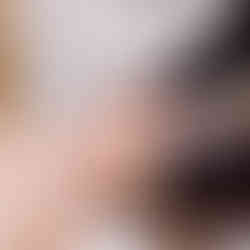So you've successfully managed your acne. You are no longer inflamed, no more puss...but you still don't have the clear skin you thought you would get once you finally got rid of your acne.
Acne scars can be a source of frustration and self-consciousness for many people, however, there are effective strategies and treatments that can help fade these scars and improve the overall texture and appearance of your skin.
Before we delve into the treatments, let's understand the different types of acne scarring. Here are the most common types of scars caused by Acne.
1. Ice Pick Scars: These are deep, narrow, and pitted scars that resemble small, deep holes in the skin. They often result from severe or cystic acne.
2. Post-Inflammatory Hyperpigmentation (PIH): This is not a scar per se, but it's a common aftermath of acne. PIH manifests as flat, discolored patches on the skin, which can range from pink to dark brown, depending on the individual's skin tone.
3. Post-inflammatory Scars: These are dark spots or patches on the skin that result from an overproduction of melanin during the healing process. They can be a type of post-inflammatory hyperpigmentation.
Now, here are my tips on how to fade your scars, which will promote clear, glowing skin at last.
Maintain a Consistent Skincare Routine:
A consistent skincare routine is essential for fading acne scars. Here are some key steps to incorporate:
Cleansing: Use a gentle cleanser to remove dirt, oil, and impurities from your skin without stripping its natural moisture.
Exfoliation: Regular exfoliation helps to promote cell turnover, which can fade scars over time. Opt for chemical exfoliants like alpha hydroxy acids (AHAs) or beta hydroxy acids (BHAs).
Moisturising: Hydration is crucial for overall skin health. Choose a non-comedogenic moisturiser to keep your skin balanced.
Sun Protection: UV rays can worsen the appearance of scars. Use a broad-spectrum sunscreen with an SPF of 30 or higher every day.
Incorporate Scar-Fading Ingredients.
Certain ingredients can help fade acne scars by promoting collagen production and skin regeneration. Look for products containing:
Vitamin C: A potent antioxidant that brightens skin and promotes collagen production.
Niacinamide: Reduces inflammation and improves skin texture.
Retinoids: Stimulate collagen production and accelerate cell turnover, helping fade scars over time.
Consider Professional Treatments:
If you're seeking more rapid and significant results, professional treatments may be an option:
Chemical Peels: These exfoliating treatments use acids to remove the top layer of skin, revealing smoother, less scarred skin beneath.
Microneedling: This procedure involves tiny needles that create micro-injuries in the skin, stimulating collagen production and improving scar texture.
Crystal Free Orbital Microdermabrasion Orbital Microdermabrasion is a non-evasive skin resurfacing treatment that works by gently removing the dead layer of skin with the use of an orbital rotation hand piece which significantly reduces skin imperfections.
Practice Patience: It's important to remember that fading acne scars is a gradual process. Consistency is key, and results may take several weeks or even months to become noticeable.
Prioritize Self-Care: Healthy lifestyle choices can contribute to the overall health and appearance of your skin. Get regular exercise, eat a balanced diet rich in fruits and vegetables, stay hydrated, and get enough sleep.
Fading acne scars requires a multi-faceted approach, combining a consistent skincare routine, scar-fading ingredients, natural remedies, and possibly professional treatments. Remember to be patient with your skin and give these methods time to work. With dedication and the right techniques, you can achieve smoother, more even-toned skin over time.
.png)





























Comments